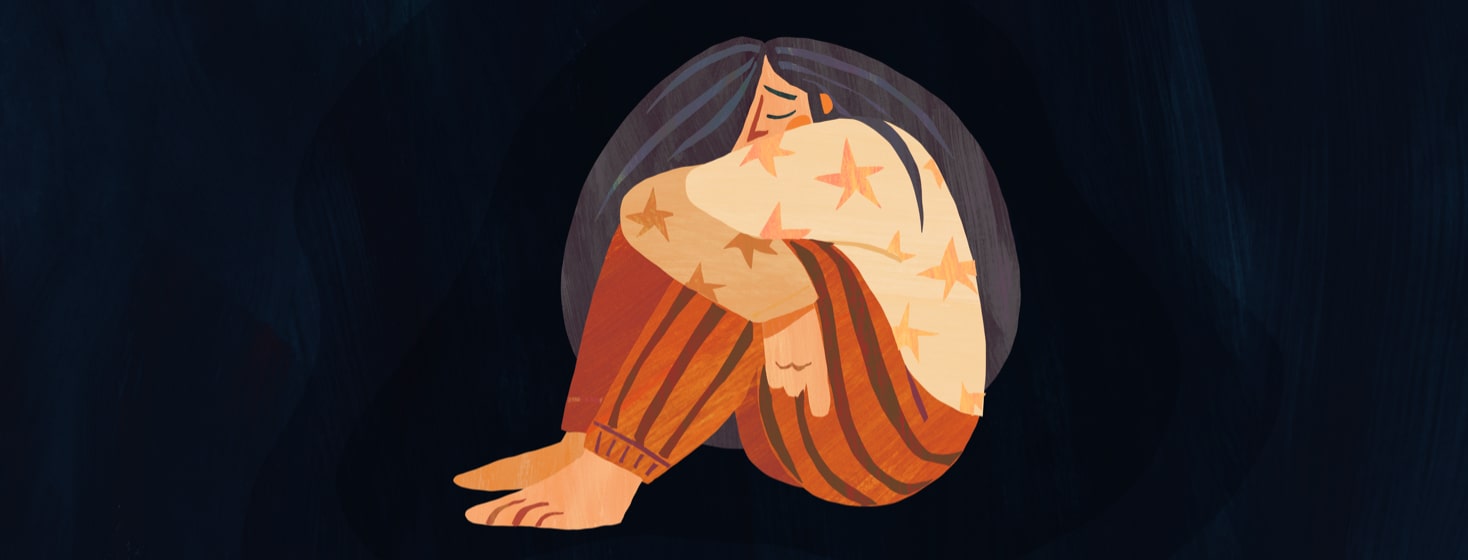Depressive Disorder and Chronic Insomnia: When the World Goes Dark
Many (most?) people associate the dimming of the lights at night with the sweet seduction of blissful sleep. Darkness equals rest. But I have lived with both chronic insomnia and major depressive disorder and there is nothing blissful about either of those states.
Depressive disorder and chronic insomnia
There is a strong connection between mood and sleep. Mood changes can bring about sleep changes. And vice versa.
Sometimes depression results in too much sleep and sometimes it results in not enough. But always – always, always, always – depression is accompanied by fatigue. So, however much sleep you may or may not be getting when you’re depressed, it won’t feel like enough.
My personal experience
My personal experience of depression was that it was accompanied by chronic insomnia. I was exhausted, unable to function in day-to-day life, and lying awake day and night just hoping it would all end.
Motivation brings on darkness
Motivation is something that is in shockingly short supply when the dark veil of depression has descended. The motivation to eat well, sleep well and move well – key ingredients to good health – is just not there. A lot of my depression could be summed up in 3 words: “I don’t care.”
Caring too deeply
Depression – for me – was a mixed bag of caring. I cared too deeply about everyone else and everything else and not at all about myself. The basic daily needs of showering and dressing and eating nutritious foods were too hard.
I would drag myself from bed to couch and back again. Everything else was too hard. My thoughts were buried at the bottom of an oil well, slick with black sludge and too cumbersome to swim out of.
Trapped in hell 24/7
As I was also trapped in insomnia hell, those dark thoughts accompanied me 24/7. While sleep offers respite from depressive thoughts, it was also as rare as unicorn feathers so there was a little respite to be had.
Psychiatric stays helped me
I have now had 3 stays in psychiatric institutions and met an awful lot of people who have experienced periods of major depression, so I know I am not alone.
In the hospital, I would sit curled up on a chair and just stare off into the distance. Too exhausted to do anything. Too tired to sleep. Too sad to be motivated. Too anxious to socialize. Too afraid to eat. Too depressed to live.
Comorbidities, meds, and no sleep
When doctors tried to untangle the complicated web of confusion that I was encased in, they worked hard to help me sleep. I also have restless legs syndrome (RLS), which was a difficult path. Many psychiatric medications make RLS worse so it was a balancing act to find what would work. But 1 thing we all agreed upon – my mental health would always be compromised while I could not sleep.
And when I say I could not sleep I mean I really could not sleep. Every couple of days I would get 20 minutes here or there. I could go days with no sleep and the toll was high.
Insomnia plagued me first
I am confident that insomnia plagued me long before the symptoms of major depression descended. While there were many contributors to my poor mental health, insomnia was a major cause. Once I was unwell it was just a tangled mess where everything made everything worse.
That was 2 years ago. Now I have mood stabilizers to manage my mental health, medications to manage my RLS, and a sleeping tablet to manage my insomnia. It is a lot of pills to pop but I have to say it seems worth it. I have not felt this well for such a very long time.
Finding light in the dark
For many years I was stuck at the bottom of that sludgy oil well but eventually little glints of gold shone through and the light started to trickle in.
That light is often the result of a good night’s sleep.
Do you also experience depressive disorder and chronic insomnia? Please share a comment.

Join the conversation